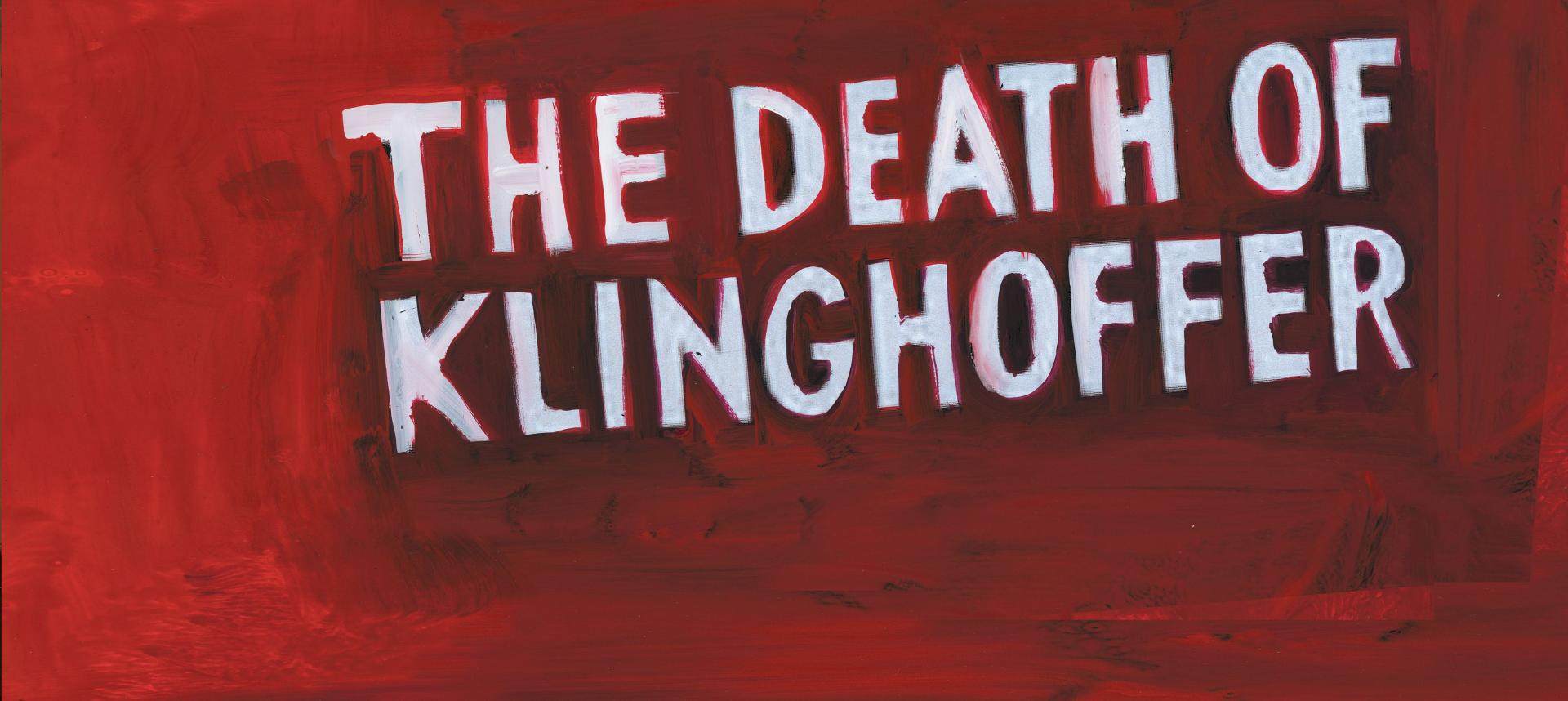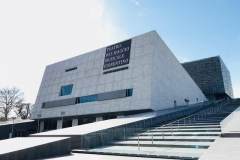The Death of Klinghoffer
Mo | Tu | We | Th | Fr | Sa | Su |
The Death of Klinghoffer – John Adams | Opera
Total duration: approximately 2 hours and 30 minutes
New production
Premiere in Florence
An opera never before performed in Florence, with Lawrence Renes on the podium — a major advocate of Adams’s music, which he has often conducted and recorded — and staging and set design by Luca Guadagnino, making his debut at the Maggio Musicale Fiorentino.
“The Death of Klinghoffer has, since its first appearance, explored the profound complexity of conflicts rooted in myth that violently erupt into history,” comments director Luca Guadagnino, who also designed the sets. “The sublime purity of John Adams’s music and Alice Goodman’s libretto will be my guiding light in bringing this monumental work to the stage at the Maggio Fiorentino, which I am honored to open in the 2026 season.”
The Death of Klinghoffer is an opera in a prologue and two acts by composer John Adams, with a libretto by poet Alice Goodman, first performed in Brussels at La Monnaie in 1991. In Italy, it has been staged only once, in 2002, in Ferrara and Modena. The opera is inspired by the shocking real-life event of October 1985: the hijacking of the Italian cruise ship Achille Lauro by terrorists from the Palestine Liberation Front. The tragedy, which captured worldwide attention, ended with the murder of passenger Leonard Klinghoffer, a wheelchair-bound American Jew, whose body was then thrown overboard by the terrorists.
Synopsis
Prologue
The prologue consists of two choruses, the "Chorus of Exiled Palestinians" and the "Chorus of Exiled Jews", each of which is a general reflection about the respective peoples and their history.
Act 1
Scene 1
The unnamed captain of the MS Achille Lauro recalls the events of the hijacking. Prior to that, most of the passengers had disembarked in Egypt for a tour of the Pyramids, and the ship set out to sea to return later for the touring passengers. The hijackers had boarded during the disembarkation. When the hijackers commandeer the ship, the passengers still on board are collected in the ship's restaurant. The narrative shifts to a Swiss grandmother, traveling with her grandson while the boy's parents are touring the pyramids. The ship's first officer, given the fictitious name of Giordano Bruno, informs the Captain that terrorists are on the ship and one waiter has been wounded. The Captain and First Officer try to keep the passengers calm. Molqi, one of the hijackers, explains the situation to the passengers at gunpoint. The Captain and Molqi have an encounter, where the Captain orders food and drink to be brought, and offers to let Molqi choose the food for the Captain to eat.
Scene 2
Following the "Ocean Chorus", another hijacker, Mamoud, keeps guard over the Captain. Mamoud recalls his youth and songs he listened to on the radio. The Captain and Mamoud have a dialogue, in which the Captain pleads that individuals on the two sides of the Palestinian–Israeli conflict could meet and try to understand each other. Mamoud dismisses this idea. During this scene is a passenger narrative by the Austrian Woman, who locked herself in her cabin and remained hidden throughout the hijacking. Act 1 ends with the "Night Chorus."
Act 2
The "Hagar Chorus", relating to the Islamic story of Hagar and the Angel and the Biblical story of Hagar and Ishmael is sung. It represents the beginnings of Arab–Israeli tension, of which the hijacking is one historical result.
Scene 1
Molqi is frustrated that he has received no reply to his demands. Mamoud threatens all of the passengers with death. Leon Klinghoffer sings, saying that he normally likes to avoid trouble and live simply and decently, but going on to denounce the hijackers. Another hijacker, called "Rambo", responds in harsh terms about Jews and Americans. The passenger, the British Dancing Girl, recalls how well the fourth hijacker, Omar, treated her and the other passengers, for example, letting them have cigarettes. Omar sings of his desire for martyrdom for his cause. At the end of the scene, Omar and Molqi have a dispute, and Molqi takes Klinghoffer away. The "Desert Chorus" follows.
Scene 2
Marilyn Klinghoffer talks about disability, illness, and death. She thinks that her husband Leon was taken to the ship's hospital, but he was shot, off-stage. The hijackers have ordered the Captain to say they will kill another passenger every fifteen minutes. Instead, the Captain offers himself as the sole next person to be killed. Molqi appears and says that Leon Klinghoffer is dead. The "Aria of the Falling Body (Gymnopédie)", sung by Klinghoffer, follows.
The "Day Chorus" links scene 2 to scene 3.
Scene 3
After the hijackers have surrendered and the surviving passengers have disembarked safely in port, the Captain remains to tell Marilyn Klinghoffer about her husband's death. She reacts with sorrow and rage toward the Captain, for what she sees as his accommodation of the hijackers. Her final sentiment is that she wished that she could have died in her husband's place.
Program and cast
Conductor: Lawrence Renes
Chorus Master: Lorenzo Fratini
Director and Set Design: Luca Guadagnino
Lighting: Peter van Praet
Orchestra and Chorus of the Maggio Musicale Fiorentino
The Captain – Jeremy Carpenter
The First Officer – Andreas Mattersberger
Swiss Grandmother / Austrian Woman – Marina Comparato
Molqi – Roy Cornelius Smith
Mamoud – Levent Bakirci
Leon Klinghoffer – Laurent Naouri
Rambo – Joshua Bloom
British Dancing Girl – Janetka Hoșco
Yazmir – Ioanna Kykna
Marilyn Klinghoffer – Katarina Dalayman
New production
Premiere in Florence
Cast updated as of June 30, 2025
Teatro del Maggio Florence State Opera Italy
Teatro del Maggio is in the centre, close to the old city walls, next to the historic Stazione Leopolda. The garden that welcomes visitors is Piazzale Vittorio Gui, named after the founder of the Stabile Orchestrale Fiorentina and the Maggio Musicale Fiorentino.
By train
Santa Maria Novella is Florence's main train station.
From there you can reach the theatre with a short walk (about 10-15 minutes) or by taking the tram (a stop) or a taxi.
By car
The Opera di Firenze is just outside the ZTL area.
It is possible to park near the Parco delle Cascine or for a fee in the Porta al Prato car park (Via Elio Gabbuggiani, 7) and in the Piazza Vittorio Veneto car park.
By bus
Lines C1, C2 and D (Leopolda stop);
Lines 17 and 23A-B (stop Via delle Carra);
Lines 17B-C, 22, 23N, 23 and 57 (Pierluigi da Palestrina stop);
Lines 29, 29B, 29BA, 29BC, 29D, 30A, 30B, 30AC, 35 and 35° (stop Leopolda - Porta al Prato; Capolinea).
By tram
Line T1 (stop Porta al Prato - Parco della musica).

 EN
EN DE
DE IT
IT FR
FR ES
ES RU
RU JP
JP RO
RO
 Seating plan
Seating plan 